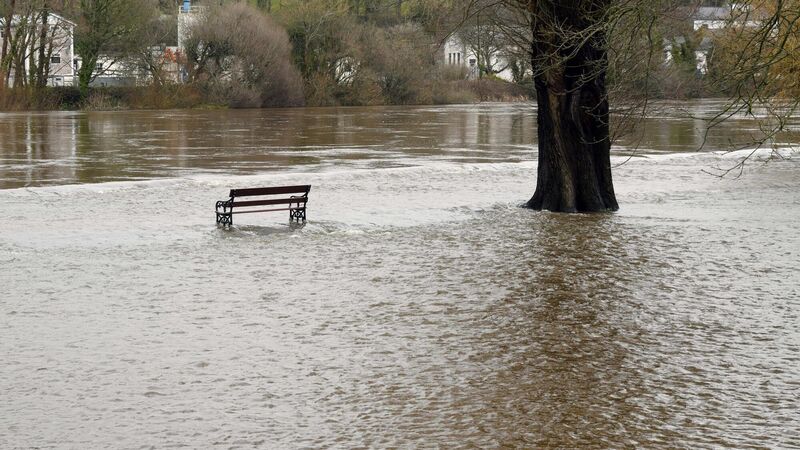Rising tide: Check whether your area will be impacted by surging sea levels

Some flooding adjacent to the River Lee at the Lee Fields, Cork, earlier this year. Photo: Denis Minihane
Ireland is already seeing the effects of climate change.
A new joint report from the Environmental Protection Agency (EPA), Met Éireann (MÉ) and the Marine Institute (MI) has found that global warming has resulted in Ireland’s climate becoming warmer and wetter, with 15 of the top 20 warmest years on record occurring since 1990.
CLIMATE & SUSTAINABILITY HUB













